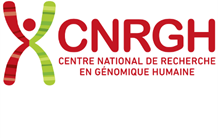Unsupervised detection and fitness estimation of emerging SARS-CoV-2 variants. Application to wastewater samples (ANRS0160)
Résumé
Repeated waves of emerging variants during the SARS-CoV-2 pandemics have highlighted the urge of collecting longitudinal genomic data and developing statistical methods based on time series analyses for detecting new threatening lineages and estimating their fitness early in time. Most models study the evolution of the prevalence of particular lineages over time and require a prior classification of sequences into lineages. Such process is prone to induce delays and bias. More recently, few authors studied the evolution of the prevalence of mutations over time with alternative clustering approaches, avoiding specific lineage classification. Most of the aforementioned methods are however either non parametric or unsuited to pooled data characterizing, for instance, wastewater samples. In this context, we propose an alternative unsupervised method for clustering mutations according to their frequency trajectory over time and estimating group fitness from time series of pooled mutation prevalence data. Our model is a mixture of observed count data and latent group assignment and we use the expectation-maximization algorithm for model selection and parameter estimation. The application of our method to time series of SARS-CoV-2 sequencing data collected from wastewater treatment plants in France from October 2020 to April 2021 shows its ability to agnostically group mutations according to their probability of belonging to B.1.160, Alpha, Beta, B.1.177 variants with selection coefficient estimates per group in coherence with the viral dynamics in France reported by Nextstrain. Moreover, our method detected the Alpha variant as threatening as early as supervised methods (which track specific mutations over time) with the noticeable difference that, since unsupervised, it does not require any prior information on the set of mutations.
| Origine | Fichiers produits par l'(les) auteur(s) |
|---|



